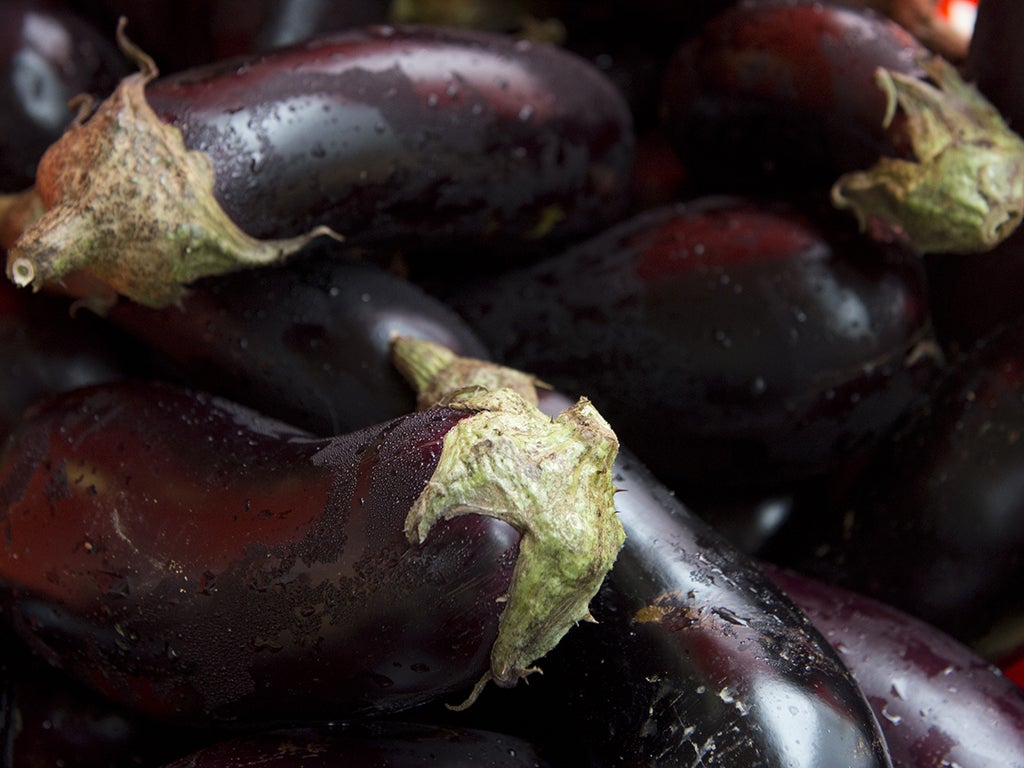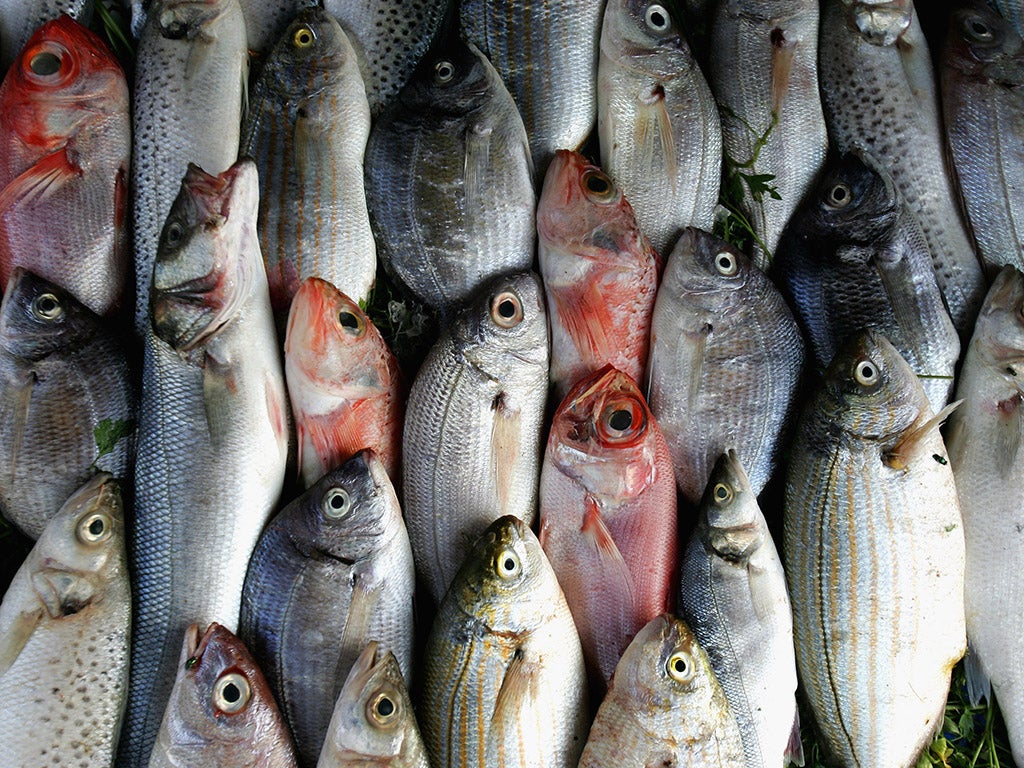Vegetarians enjoy food as much as anyone else, so why are the meat-free options at restaurants so boring?
The value of the vegetarian food market is growing as more people want to enjoy the odd meat-free meal - are restaurants taking note for their menus?

Your support helps us to tell the story
From reproductive rights to climate change to Big Tech, The Independent is on the ground when the story is developing. Whether it's investigating the financials of Elon Musk's pro-Trump PAC or producing our latest documentary, 'The A Word', which shines a light on the American women fighting for reproductive rights, we know how important it is to parse out the facts from the messaging.
At such a critical moment in US history, we need reporters on the ground. Your donation allows us to keep sending journalists to speak to both sides of the story.
The Independent is trusted by Americans across the entire political spectrum. And unlike many other quality news outlets, we choose not to lock Americans out of our reporting and analysis with paywalls. We believe quality journalism should be available to everyone, paid for by those who can afford it.
Your support makes all the difference.It’s been a good year for vegetarianism. Or a bad one for the dead flesh industry – depending on your point of view.
First there was the horsemeat scandal last year when burger fans discovered that some of their supermarket ‘beef’ products contained horse. Then in March we learned that farmed salmon sold in five supermarkets contained pesticides – especially the long-banned, Alzheimers-related DDT. And only last week the Guardian’s investigation into Britain’s poultry industry threw up a whole raft of alleged hygiene failings in factories and farms which process chicken.
All enough to convert you to vegetarianism if only there were more choice of alternatives.
It is a great deal better than it used to be. Thirty five years ago it often meant going hungry. Today there are options everywhere you look. I refer, of course, to the decision in 1979 to become a vegetarian – for health, ethical, environmental and other complex reasons.
Back then the v word rarely, if ever, appeared on a menu and you often had to make do with a side salad – and dirty looks from the management. You were at best a nuisance and at worst a subversive critic of mainstream fare. Today you can go into almost any chain or independent restaurant and find the menu cheerfully festooned with those helpful little v signs.
Nearly all eateries seem, at last, to have grasped that fish is flesh so vegetarians don’t eat it and many now understand that parmesan and grana padano are not acceptable because of the animal rennet. And for that I – and most of the other two per cent of the population who are vegetarian – am very grateful.

“I've been a vegetarian for well over 20 years now and I have seen the vegetarian choices in restaurants improve dramatically,” says Liz Thompson who lives on the south coast. She continues: “These days when I go out for a meal with my partner (who is a meat eater) it rarely seems a problem for us to find a place where we both enjoy the food.”
London-based Colin Appleby who has just set himself the challenge of becoming vegetarian for a year agrees: “As a new, and temporary, vegetarian I'm delighted to discover new veggie restaurants. I'd previously only thought of places like Food for Thought and Govindas, but now there's a plethora of places to pick palate-pleasing dishes from. Not only do we have the rise of Middle Eastern and Mexican food to give us falafels and burritos but there are places like Vanilla Black and Grainstore. Both of those, although Grainstore isn't a vegetarian restaurant, serve dishes that will leave everyone satisfied when they leave the table. It's all a far cry from the 'worthy' brown rice and lentils that I still associate with vegetarian food.”
According to the Vegetarian Society only one person in fifty is fully vegetarian. But interest in meat-free cuisine has burgeoned in the 21 century - which is good news for those of us who eat nothing else. “The number of committed vegetarians has actually remained fairly stable over the last ten years.” says a Vegetarian Society spokesperson. “The real growth area is in meat reducers. These are people who haven't given up meat completely, but are making a conscious effort to eat less of it. The value of the vegetarian food market has grown from £333million in 1996 to £786.5million in 2011 (Mintel), showing that a lot more vegetarian food is being eaten throughout the country.”
And that is, of course, why it’s on all those menus. Restaurateurs, eye on profits, are offering people what they want, or what the restaurant people think they want. Trouble is – and this is my real gripe – is that it all gets very samey and fashion-driven. Butternut squash and goat cheese are the foods of the moment and they’re almost everywhere – usually in a risotto or salad. A few years ago it was vegetable lasagne.
“When I was first a vegetarian, the only option you had was a vegetable lasagne. It took me a long time to be able to look at one and even now I will never choose one on a menu no matter how well recommended it comes!” says Liz Thompson.
“I’m already bored with seeing veggie lasagne and chickpea curry on menus and I wish pub chains would liven up their veggie offerings beyond a mushroom burger or salad.” adds Colin Appleby. “I guess my wishes will fall on deaf ears as long as the vegetarian is regarded as an annoyance to be tolerated. In the long run that can only serve to boost the business of those restaurants that do try to offer something different and succeed.”
Liz Thompson has a problem with set menus too. “The vegetarian choice becomes very limited and is often very uninspiring, almost like an afterthought. I would also say that when I move out of the city more into the countryside, the choice decreases. There have been times when I have gone out with the intention of having a roast and there was no vegetarian option so I could eat only the vegetables.”
Yes, that’s another complaint. Vegetarians are not kill-joys. They enjoy food and eating as much as anyone else. They need as many calories and they need protein. I was recently given two miserable (and tough) small slices of aubergine as a substitute – on a set menu – for the chicken served to everyone else. Was it meant to be a punishment for my awkwardness? Nuts, lentils and tofu may seem like a clichéd joke to some but they’re good and tasty - and nutritious - when cooked imaginatively. So are eggs, rennet-free cheese and even the much maligned lentils.

So how do the specialists approach these matters? I asked Olivia Reid marketing and communications manager at the Award-winning vegetarian restaurant Terre à Terre in Brighton, whose customers are, she reckons, roughly 30 per cent vegetarian. The other 70 per cent are diners who enjoy meat-free cuisine occasionally.
“Inspiration and need are the two leading criteria for main course development,” she says, assuring me that yes, they do include tofu, cheese, egg, nuts, seeds, pulses and grains, combined should the dish require it, as part of an overall varied menu encompassing a balance of texture, protein, spice, heat, freshness, citrus and seasoning. “Amanda (co-owner and executive chef) and Matty (head chef) work closely together to inspire each other and create new dishes. We change dishes based on seasonal produce availability, but we also need to ensure we have a balanced menu offering a choice of vegan and gluten free options, spicy and cheesy dishes, fresh and fried and so on.”
The point about eating out is that people go for a dining out experience and that applies equally to vegetarians and people who enjoy – even prefer – occasional meat free dishes. And the quality of the experience is diminished when the choices are very narrow and predictable. Much as the situation has improved it could still be better. Perhaps some of the chefs and menu planners working for omnivorous restaurants and chains should personally experience the fare in top notch restaurants such as Terre à Terre to see just how it can be done?
And while we keep hearing about desperately alarming things about the way meat, fish and poultry are produced then the need will, I suspect go on growing.
Join our commenting forum
Join thought-provoking conversations, follow other Independent readers and see their replies
Comments